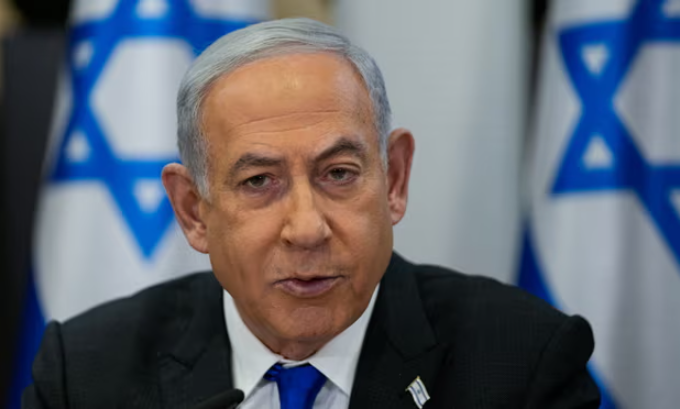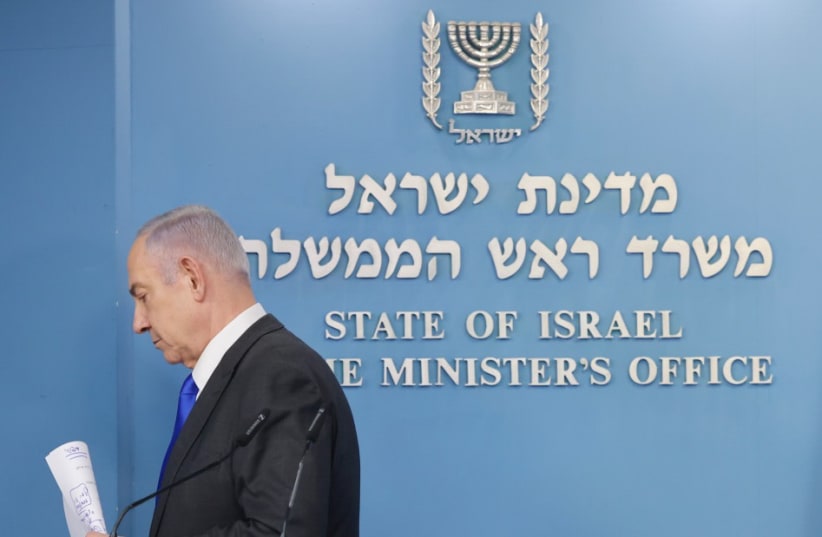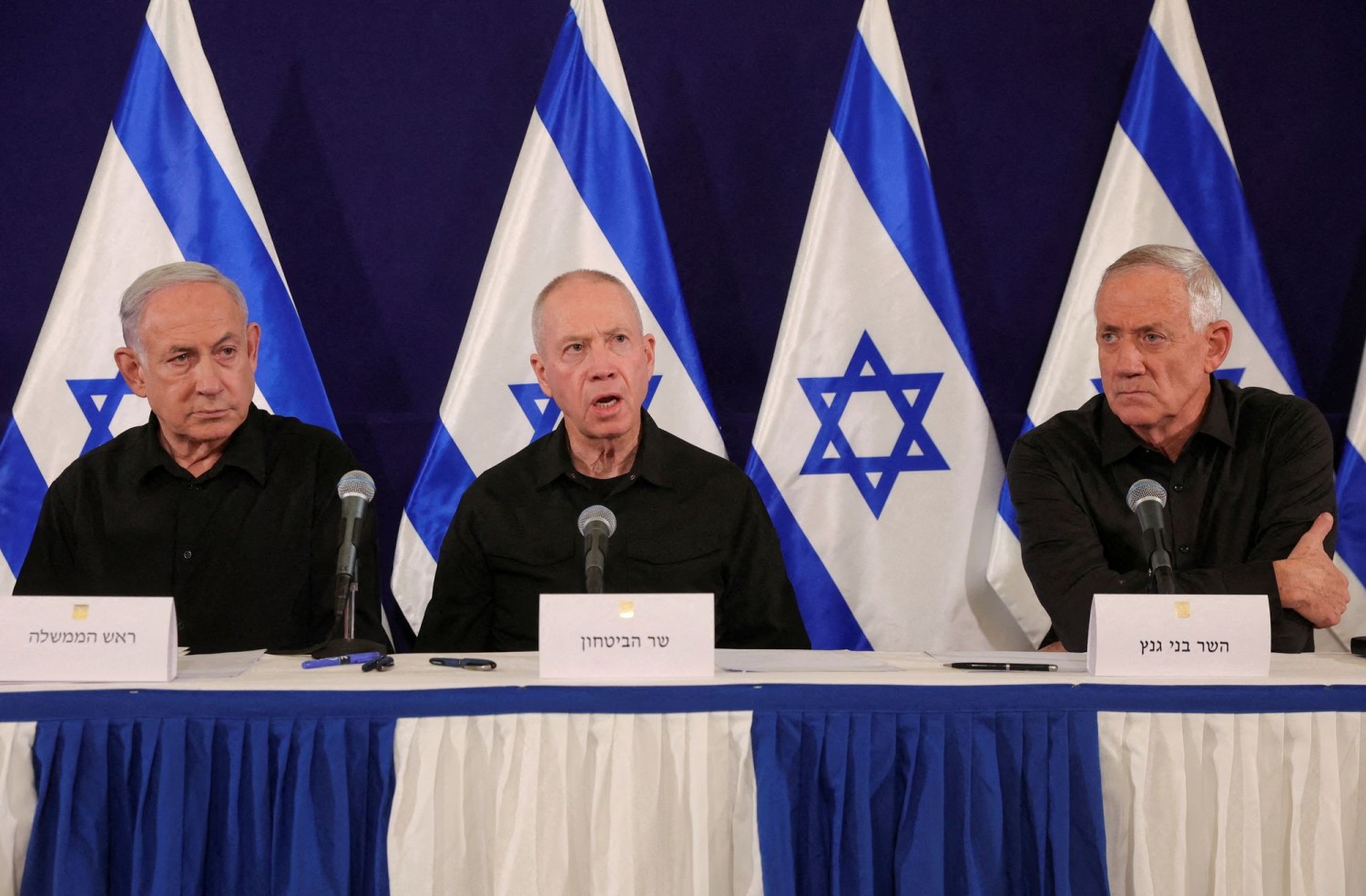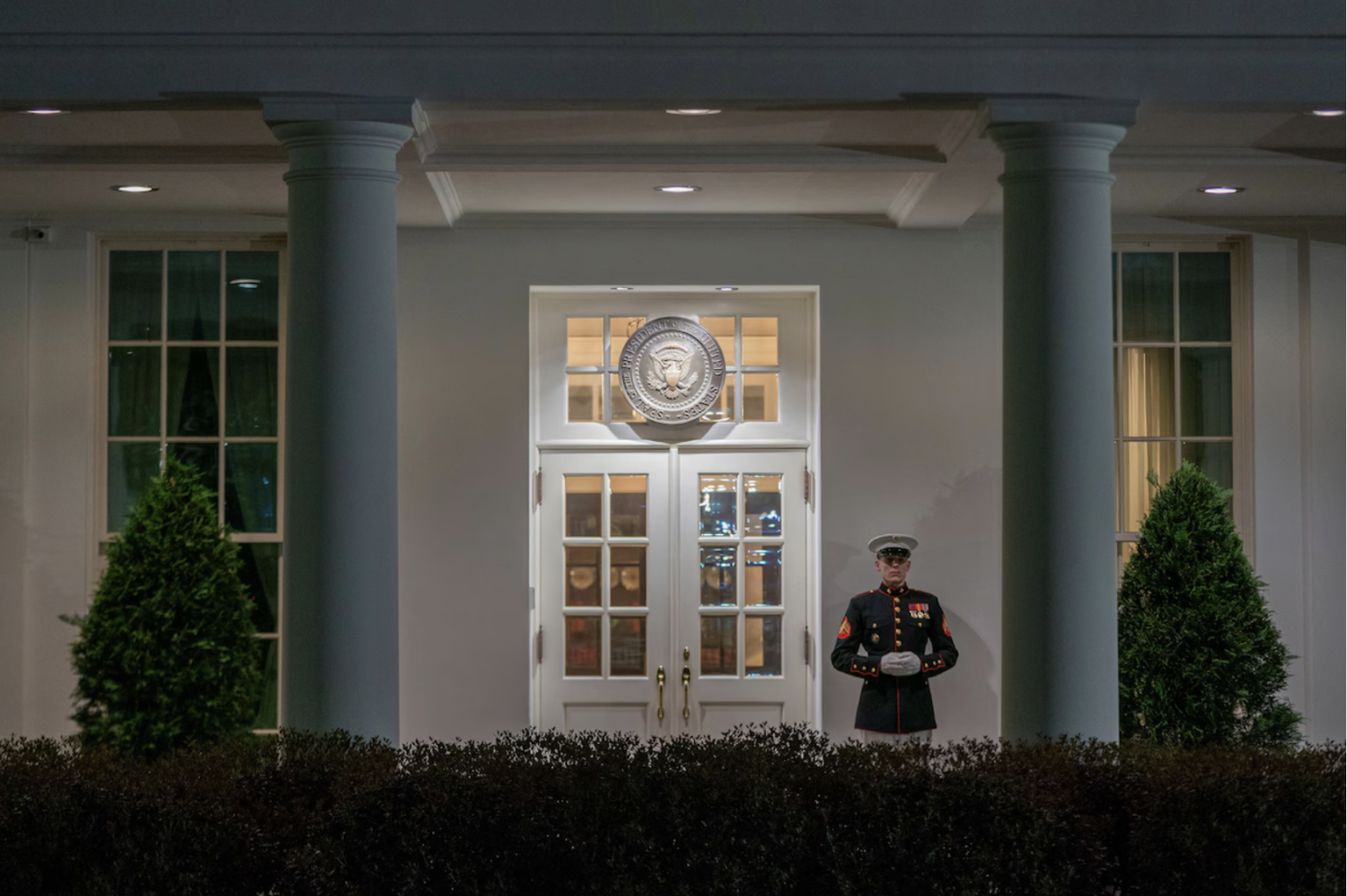This article is more than
1 year oldBenjamin Netanyahu refuses to discuss postwar plan for Gaza Strip

Israel’s prime minister, Benjamin Netanyahu, has allegedly refused requests from security officials to begin making plans for control and governance of the Gaza Strip after the war with Hamas ends, according to a report.
Over the last few days, three requests to the prime minister’s office were conveyed on behalf of the directors of the Mossad, the Shin Bet, the Israel Defense Forces (IDF) chief of staff and the defence ministry to arrange a meeting on decisions relating to “the day after” Israel declares it has achieved its goals against the Palestinian militant group in control of the Gaza Strip, Israel’s Channel 12 reported on Tuesday night.
All those requests were refused, the network said. “Time is running out and decisions need to be made already about how to act with regard to all the relevant actors inside and outside the Gaza Strip. The Americans want explanations,” it quoted an unnamed security official as saying.
Tuesday’s report comes amid allegations in the Israeli media that Netanyahu and his defence minister, Yoav Gallant, have also refused to discuss the long-expected transition from the current “high intensity” stage of fighting to a new phrase focused on the more precise targeting of Hamas’s leaders, as well as a report that Netanyahu did not allow Gallant to hold detailed discussions about possible hostage-release deals with the Mossad.
Netanyahu may wish to postpone such discussions to protect his position as prime minister: his wartime unity government will disband after the conflict ends, and any solution for Gaza that involves Palestinian actors, such as the return of the West Bank’s Palestinian Authority, threatens the stability of his far-right coalition government.
A spokesperson for the prime minister’s office said a date for a cabinet discussion on “the day after” had been set a month ago and would take place in the coming days.
On the ground in Gaza, Israel has broadened its offensive against Hamas, expanding into several overcrowded refugee camps near the central town of Deir al-Balah, as well as launching heavy airstrikes on the southern towns of Khan Younis and Rafah – all areas the military had told Palestinians to seek shelter earlier in the war.
House-to-house fighting has also been reported in the north of Gaza, despite comments from the IDF chief of staff over the weekend that the military had largely achieved operational control above the Gaza River.
Since Christmas Eve, the besieged Palestinian territory has suffered some of the deadliest days of the 12-week-old conflict to date, sparked by Hamas’s devastating attack on southern Israel on 7 October in which militants killed 1,140 people and took up to 250 hostage.
Israel’s retaliatory war on the Hamas-controlled Gaza Strip has already become one of the most destructive conflicts of the 21st century, with estimates suggesting more than 20,900 people have been killed, 55,000 injured, and 85% of the Palestinian territory’s 2.3 million people forced to flee their homes.
In his first interview since the hostilities broke out, the Palestinian Authority president, Mahmoud Abbas, said on Tuesday night that the war was “beyond a catastrophe”, accusing Netanyahu of planning “to get rid of the Palestinians”.
Despite rising international outcry over the humanitarian disaster, including growing criticism from the US, Israel’s most important ally, Netanyahu has said that Israel will push on until “complete victory” over Hamas.
Ron Dermer, a member of Israel’s war cabinet, is expected to meet with US officials in Washington on Wednesday. Divisions within the Biden administration over Israel policy have been growing, with some officials saying the US has underestimated the scale of disillusionment in the global south over perceived hypocrisy in calling out Russian war crimes in Ukraine, but finding a multitude of reasons to justify the large-scale killings of Palestinians in Gaza.
Also on Wednesday, the UN appointed Sigrid Kaag, the Netherlands’ outgoing finance minister, as aid coordinator to the Palestinian territory, following last week’s watered-down security council resolution, which called for aid to be delivered to Gaza “at scale”.
About 200 trucks a day are currently entering Gaza, but aid agencies say this is still a fraction of what is needed. Before the latest conflict broke out, about 500 goods and aid trucks entered the territory every day.
Keywords
<p>Kendrick Lamar has released a diss track attacking fellow rap star Drake, escalating their long-running feud.</p>
US Congress threatens ICC over Israel arrest warrants
Tiger’s heartbreaking daughter revelation
Rwanda must halt ‘support’ for M23 rebels, withdraw troops from DR Congo, says Macron
Free Madonna concert draws crowd of 1.6m to Brazil’s Copacabana beach
Over half of Israelis believe Netanyahu should resign immediately - poll
Harvey Weinstein faces New York retrial after 2020 rape conviction overturned
US intel admits ‘potential for Russian military breakthrough’ in Ukraine conflict
Police make arrests in killing of B.C. Sikh activist Hardeep Singh Nijjar
In Russia’s Backyard, Georgians Protest Against Moscow-Inspired Bill




